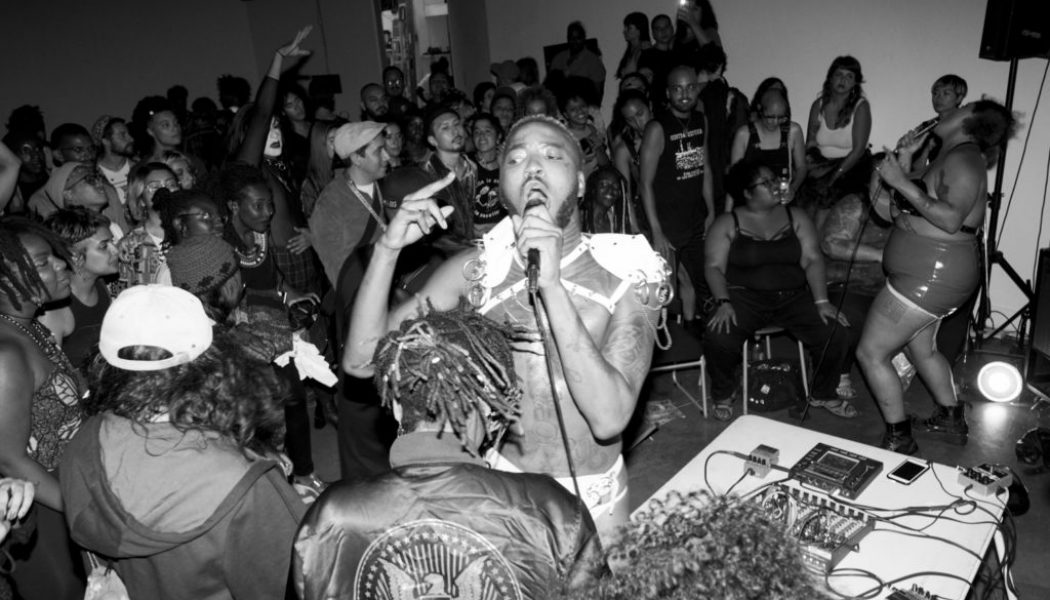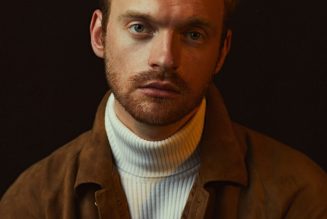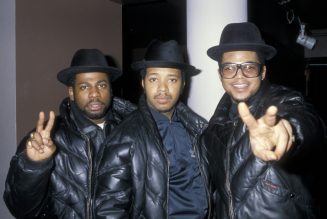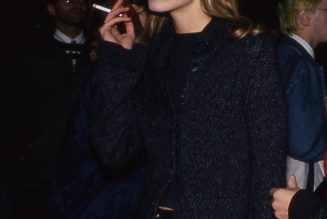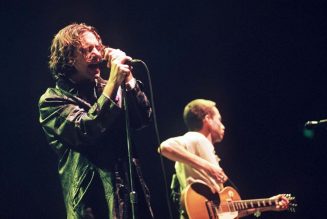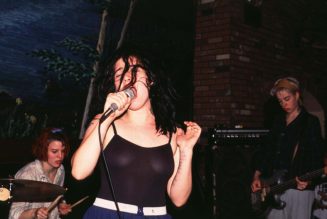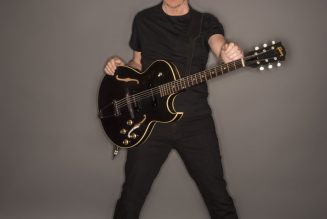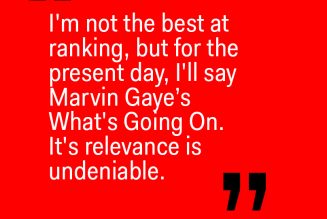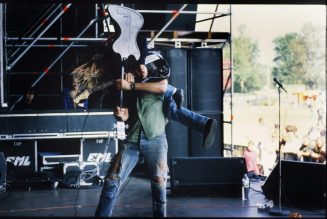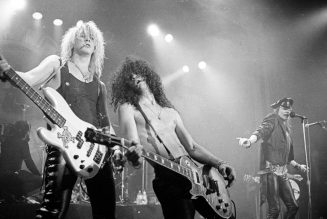When the U.S. went into an economic shutdown to slow the spread of COVID-19 earlier this year, Shawna Shawnté — an Oakland musician and community organizer now based in Avondale, Arizona — didn’t take it seriously or believe it would affect the underground DIY music scene.
“I — like everyone at the beginning — was like, ‘They’re exaggerating,’” Shawnté tells SPIN. “And then as time went on, I had an awakening where I was like, ‘Oh, this is how people feel about racism or transphobia. Because it’s something they can’t see or don’t see, they don’t think it’s real, and a lot of people who are in disability justice or are living with chronic illness or other issues, they’re like, ‘this is real.’”
Business closures have been widespread and unrelenting throughout every industry, especially music and the arts — which were classified as non-essential. COVID-19 thus prompted the creation of the National Independent Venue Association (NIVA) as a way for venues to band together and secure funding. While the music industry is undoubtedly in danger, even more concerning is the livelihood of obscure DIY venues that exclusively serve as safe spaces for people of color, women, LGBTQIA+, disabled and Black individuals.
What happens when disenfranchised musicians and artists no longer have access to locations or events where they can safely build creative communities?
“Trans people are already marginalized into our own communities exclusively, so we have only-trans-safe venues or pro-trans venues to operate in, and that’s like 1% in comparison to cis-people having 99% accessibility to spaces that are cis-accepting,” says New Orleans musician and community organizer Uhuru Ali Moor, better known as the Uhuruverse. “Therefore, when you talk about the difference, the gap is immeasurable — and the same with disabled musicians — because with the pandemic, everything has come to a halt for everyone, but that halt is heavier for trans musicians and disabled artists.”
Marginalized creatives are grappling with the aftermath, determining how to push forward and ensure the survival of both safe spaces and the DIY community. Yet as the CDC continues to declare that Black, Latinx and Native/Indigenous people are suffering higher rates of COVID-19 cases and deaths, bands, fest organizers, and owners of safe spaces are faced with a challenge: how to responsibly sustain their artistic communities without jeopardizing the health of those already most at risk.
While other concerts and events have proceeded throughout the summer — like July’s Mini Fest — organizers like Shawnté have prioritized people’s health above all.
“Every one of our lives is valuable, so I would hate to say ‘Fuck it, let’s have a show,’” Shawnté says, while impersonating a white bro. “What if someone gets sick or somebody is asymptomatic and they take it to someone whose body can’t handle it? I love my people; I love my community, and I care about people outside of that, so any show or party is not worth it to put someone else at risk.”
Shawnté organizes an annual DIY festival in the Bay Area for Black and brown (mostly queer) musicians called the Multivrs is Illuminated. Shawnté and her co-founders — Jade Fair, Sharmi Basu and Titania Kumeh — created the fest in 2017 following two critical events the prior year: the presidential election and the Ghost Ship warehouse fire in Oakland that killed 36. Shawnté says both occasions emotionally impacted the socioeconomically disadvantaged area — which is predominantly made up of people of color — so the organizers wanted to uplift the community by celebrating local talent with live music, visual art and film screenings.
“The bands have to be 50% Black or brown, and no white people can have microphones because we really wanted to create a space where our voices were the only ones heard,” Shawnté says.
The Multivrs is Illuminated showcases musicians from genres like punk, alt-rock, experimental, indie and electronica, among others. Fostering this welcoming environment for people of color has led to immense support — Shawnté says these types of settings are still not prevalent in the national DIY scene.
“Most of the people I know are not gonna find themselves or their community — their uninhibited joy — in a bar or in a club,” Shawnté says. “People need this space because there’s not a lot of spaces where we’re gonna find that — I can’t go to the club downtown and get what I’m looking for.”
When the Black Lives Matter protests sparked this year, Shawnté was compelled to celebrate Black talent and demonstrate the importance of art and music as regenerative forces. She collaborated with a friend — Juicebox Burton, a visual artist and filmmaker from New Orleans — and decided to move the fest online for the first time. Shawnté and Burton believed this was the most responsible way to execute the event amid the pandemic.
“Black and brown people are disproportionately affected, and ultimately going digital is an example of how we shift to get what we need, but to also keep ourselves well — there’s enough forces working against us,” Shawnté says.
The Multivrs is Illuminated was broadcasted on Zoom Aug. 6 to 8, featuring 36 acts and 18 film shorts that explored themes of sex, queer identity and ancestral magic. The performances were live and pre-recorded with bands from the Bay Area, Los Angeles, Philadelphia, New Orleans, New York and Avondale.
Shawnté says the virtual fest couldn’t truly substitute the live experience of past fests, but it was still overall successful in creating a different type of safe space for supporters: “I really just wanted to reclaim that digital space as a place where we can experience joy and where we can be together. If you go on a web search and you look up Black kids or Black people, a lot of times [the images are] demeaning or not good … just reclaiming that digital space — it’s used against us so much, and we gotta take it back.”
Moving shows to online platforms has become such a widespread phenomenon that even large-scale events like the 2020 iHeartRadio Music Festival have utilized digital spaces to broadcast performances. But for DIY venues, the limitations have drastically interfered with their options. For Mariah Fortune-Johnson, a darkwave/post-punk artist from Baltimore who goes by the stage name Woven In, the pandemic disrupted her plans for a DIY venue that she opened in January.
“I was mostly focused on marginality because people just don’t cater to that community as much, so I wanted to make an inclusive space,” Fortune-Johnson says.
As an all-ages sober safe space, the Catbody Space hosted shows, workshops, open mics and community events. Three months into the grand opening, though, the pandemic forced the singer to close her doors.
“It was really abrupt. I already had things on the books; I already made the designs and the pages to start promoting for stuff, and none of that is happening now,” she says. “I was a little sad — I had just started getting this venue together, but it’s almost not too sad because I didn’t spend a lot of time building it up, it was under six months, but it had such a big possibility in my mind.”
Fortune-Johnson could have easily continued to hold shows under the radar as an underground DIY venue, but since the Catbody Space is entirely indoors, she didn’t want to take the risk.
“I’m an empathetic person, and I value other people’s lives. I value my own life, and this is not the climate to still be throwing shows,” she says. “I wouldn’t feel right or comfortable doing that — I’m not greater than what’s happening, so I just accept it, adapt to it and try to make some good.”
Part of that acceptance included writing about the social injustices that were amplified during the pandemic as part of the Black Lives Matter protests. Her new album, Profess, addresses the pain she felt because of all the recent killings of Black people by police.
“George Floyd, Ahmaud Arbery, Tony McDade, Breonna Taylor in succession, and it was such a heavy weight,” she says. “I’m still working through it. I’m still grieving. There’s times that I think I’m over it, and then I get super angry about it all over again. But making the album released some of those emotions, and I feel really blessed to make it through that.”
The venue owner also utilized that desire for social change by starting the Black Creatives Redistribution Fund to help financially support Black writers, musicians, artists, photographers and others. Fortune-Johnson uses the money to pay creatives and invest in their art.
“I was inflamed by the killings of Black people. It made me so mad that it was like, ‘I have to do something with this energy,’” she says. “I’m not doing shows right now, so what else can I manifest? It came out of frustration and also being an underpaid Black creative — it felt like a good thing to do.”
As the singer continues to support and advocate for Black artists in the DIY scene, she says she doesn’t feel a sense of dread or negativity about the state of Catbody Space. The pandemic may have shut her doors, but it hasn’t ended the possibility of its future.
“Things are morphing all the time, so I don’t even know if Catbody is officially over,” she notes. “It’s taking a backseat in my life, and it may be revisited, but it’s not definitely over.”
For underground bands who exclusively play the DIY circuit, the venue closures haven’t just meant that they’ve been unable to play — they also haven’t been able to help cultivate safe spaces by spreading crucial messages, awareness and activism in their music. According to Chella Isabel Marie Coleman, a Los Angeles activist and singer of punk band You Guys Suck Like Real Hard Shut The Fuck Up Thanks, this is integral work in the underground scene.
“Punk is political, and we’re all trans [and non-binary] in my band,” Coleman says. “And besides that, I’m a Black person; our other two members are Black; [bandmate] Matías is from South America; and I just feel like being a political statement. People are like, ‘Would you wanna be signed to a label or get famous?’ and I’m like, ‘No, I just wanna turn gender and race on their motherfucking heads.’”
The first time that Coleman rehearsed with guitarist the Uhuruverse (who also plays in Fuck U Pay Us), drummer Matías Gabriel Anaya Espinosa and bassist Maya Faith “Mayalopolis” Daniels in an L.A. studio, the energy was so electrifying, they caused a power outage in the entire building. When the group went outside to brainstorm a moniker for their newly formed band, they noticed something taped to their door. “We see this note from one of the neighbors that said, ‘You guys suck like real hard, shut the fuck up, thanks,’ and we were like, ‘That’s our name — let’s turn that into a positive reinforcement,’” Espinosa says.
Despite the note’s message, Y.G.S.L.R.H.S.T.F.U.T. have been a fixture in the DIY scene since their 2019 inception with gigs across L.A. — including the annual DIY Transgress Fest, a celebration of trans bands in punk — and were flown out in February to perform at the Art Institute of Chicago as part of the queer punk exhibit Vaginal Davis: The White to be Angry. In their short time as a band, they’ve gained recognition for spotlighting trans, disability and Black issues in their music.
The past year was immensely busy for the band, but all of the bookings came to an end when COVID-19 hit. Further exacerbating the situation was the fact that, since some of the band members are disabled, the health guidelines became especially difficult to follow. And then Coleman, who is immunocompromised, became sick.
“I did contract COVID for a month. I’m super clear now — I’ve made it where other people haven’t, and I’m thankful,” Coleman reveals.
And even though the band has finally been able to safely practice again, Coleman says the loss of the live show experience has left a noticeable void.
“I get such a rush when I’m yelling, especially for this song ‘Mourn,’ which usually I’ll name fallen Black sisters,” Coleman says. “I’ll scream their names; people will mosh to that; and that gives me the rage I need to survive. So I’ve missed that, and I’ve missed getting the money — let’s keep it real.”
The band is continuing their advocacy wherever possible. For the Uhuruverse, that activism has been less physical due to his disability, but the pandemic has nevertheless prompted him to fundraise for a DIY artist residency in New Orleans (where he is currently displaced). The Uhuruverse wants to open a safe house for Black trans and disabled artists/musicians and sex workers.
“With this pandemic paralleling genocide, people don’t have money,” he says. “And people need safety. We need to own something so that we can’t just be kicked out for being renters.”
For now, the band is working on their next EP and recently performed a virtual set for Queerpocalypse, a DIY fest for queer punks of color that Coleman organizes. Y.G.S.L.R.H.S.T.F.U.T. is also playing a protest set today by setting up on the corner of Sunset Blvd. in Echo Park for Transgender Day of Remembrance. Because of this event, the Proud Boys — a right-wing extremist group defined by the Anti-Defamation League as “violent, nationalistic, Islamophobic, transphobic, and misogynistic” — sent the band a threatening message indicating they may show up. The band, however, refuses to acquiesce to fear and will continue with the performance. “We need this because we are dying anyway; we’re getting murdered — either we sit in our rooms and cry about it, or we yell it in the streets so we don’t die from [transphobia, white supremacy and patriarchal power],” Coleman says.
Nevertheless, the band does miss the live show experience, but with the CDC predicting that COVID-19 cases will rise again with flu season, Y.G.S.L.R.H.S.T.F.U.T. have no problem settling for online performances as the pandemic continues.
“Given the circumstances, no, let’s not get together among physical groups and slam against each other,” Espinosa says. “One thing that’s punk as fuck is to make do with what you have, and right now what we have is virtual shows — anything other than that is trying to ignore the reality of the world we’re living in currently, and that’s not punk. Punk is all about facing that reality and dealing with it and still making powerful music in the face of that.”
It’s uncertain how long the pandemic will continue to rage on and impact the livelihoods of bands, fest organizers and venue owners from marginalized backgrounds in the DIY music community. But if the move to virtual platforms has demonstrated one thing, it’s that artists and creatives have managed to thrive and successfully negotiate new avenues for safety and community in the era of COVID-19.
“Virtual reality cannot replace that [live] experience, it’s not the same thing, but of course we adapt to the times,” the Uhuruverse says.
And adapting to change is the key to survival, even in the DIY scene, and especially for its resilient community members.
“One thing about being DIY — the whole point is finding a way,” Shawnté says. “And we’ll keep finding a way because that’s the point of what we do.”
